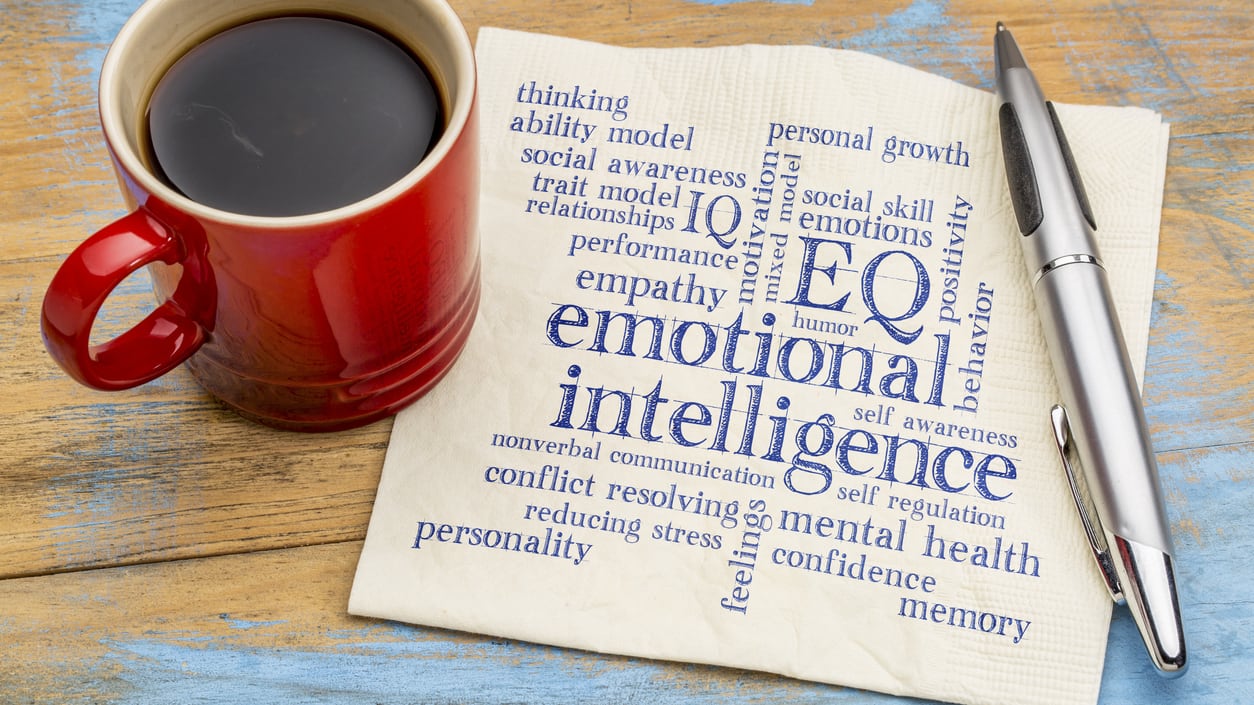She's Smart—But She's Not Emotionally Intelligent
Patience, empathy and understanding from the boss lead to high-performing teams

The employee you just promoted to management has always been fast, productive, smart and creative.
But some of the qualities that make her such an asset aren't translating well into her new role: She gets impatient with people who move more slowly than she does. She's frustrated with direct reports who aren't as prolific as she was. She grows annoyed with workers who need things explained more than once.
How can you as her employer help her acquire the skills—patience, empathy and understanding—that don't come naturally to her?
"This is a typical client in my coaching practice," said Geri Grossman, president of My Executive Coach in Buffalo, N.Y. "A first step is to communicate to this new manager the many assets she possesses and the contributions that she brings to the organization."
After that, Grossman said, it's time to have a heart-to-heart discussion with her about developing emotional intelligence—a trait workplace experts say is key to becoming a successful manager.
When people move into management, they "often continue doing what worked before, which was getting results at all costs," said Annie McKee, a senior fellow at the University of Pennsylvania's graduate school of education who teaches leadership and emotional intelligence. "They've been so focused on individual achievement that it's really hard to switch to focusing on collective achievement [for the] team.
"That's a sure way to fail as a manager," continues the co-author of Becoming a Resonant Leader (Harvard Business Review Press, 2008). "Because as a manager, you get results through the people you manage. This requires a great deal of emotional intelligence."
What Is Emotional Intelligence?
People sometimes refer to emotional intelligence as EQ, like how we refer to intelligence as IQ.
Grossman defines EQ as the "capacity to be aware of, manage and express our emotions and to be able to manage the emotions of others."
"This involves a high level of self-awareness and empathy," she said. "Our level of EQ is influenced by our values, such as respect for others, empathy and compassion. Our beliefs, socialization and upbringing also influence our level of emotional intelligence."
Is EQ inherent? Something people are just "born with"?
There is new research suggesting that "there is a definite connection between a person's genetics and his or her ability to empathize with others," Grossman said. "Empathy is a significant EQ skill, and leaders with empathy are able to attune to a wide range of emotional signals. Such leaders listen attentively and can grasp the other person's perspective. Empathy in the workplace enables a manager or leader to be able to get along well with people of diverse backgrounds and different cultures."
There may also be environmental factors at work that contribute to EQ, she said.
"Organizations that include values in their vision and mission statements tend to hire people who have higher EQ," she explained. "These organizations build a culture of values-based leadership and a culture of accountability. They value a manager's ability to build trusting relationships, develop others, empathize and demonstrate optimism, and [those] who can create an environment where people can do their best work. There is a saying that IQ will get you the job, but EQ will help you to keep the job."
Can EQ Be Taught?
For new managers to develop EQ, the training conditions have to be right.
"One-shot presentations are not enough," said Cary Cherniss, professor emeritus of organizational psychology and co-chair of the Consortium for Research on Emotional Intelligence in Organizations at Rutgers University. "Even a daylong workshop or a weekend retreat is usually insufficient. Developing EQ requires intense effort over a sustained period of time."
A coach—whether inside the company or outside—is often helpful, she said.
"It needs to be someone the new manager trusts," said Cherniss, whose forthcoming book Leading with Feeling: Nine Strategies of Emotionally Intelligent Leadership (Oxford University Press, 2020) uses as an example a case where an outstanding leader coached a peer who was lacking in EQ.
An internal coach, Grossman said, should be "an established, credible and respected leader … who possesses the qualities of empathy, understanding and patience, and the payoff for acquiring behaviors that motivate and engage others is achieving high-performing and cohesive teams."
It's also a good idea to start with an assessment, Cherniss said. How does the new manager see herself and the situation she's in? And how do the people around her view her? The company's HR or organizational development team often can administer assessments that will give the new manager powerful insights into her management strengths as well as the challenges and behaviors that may hinder her success. Some assessments also will identify the factors at work that motivate and engage the new manager.
"She should be willing to be self-reflective [and] open to learning, practicing and experimenting with new strategies and behaviors that will support her management development, effectiveness and influence in the organization," Grossman said.
Then, Cherniss said, comes "a long period of trial and error, feedback and correction, setbacks and renewed effort."
The process is rarely quick and easy, McKee said. "I believe people can learn emotional intelligence, but only if they want to and only if they focus and put a lot of effort into it. And that's because people who are self-aware, empathetic and have a positive outlook have developed those things over many years since they were children. So, if we want to shift how we read people, we're literally rewiring our brains."
An organization run by AI is not a futuristic concept. Such technology is already a part of many workplaces and will continue to shape the labor market and HR. Here's how employers and employees can successfully manage generative AI and other AI-powered systems.



